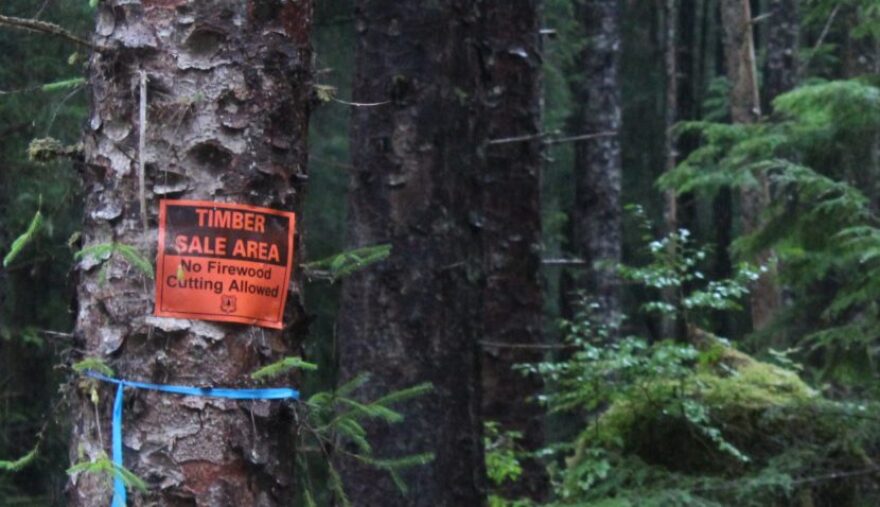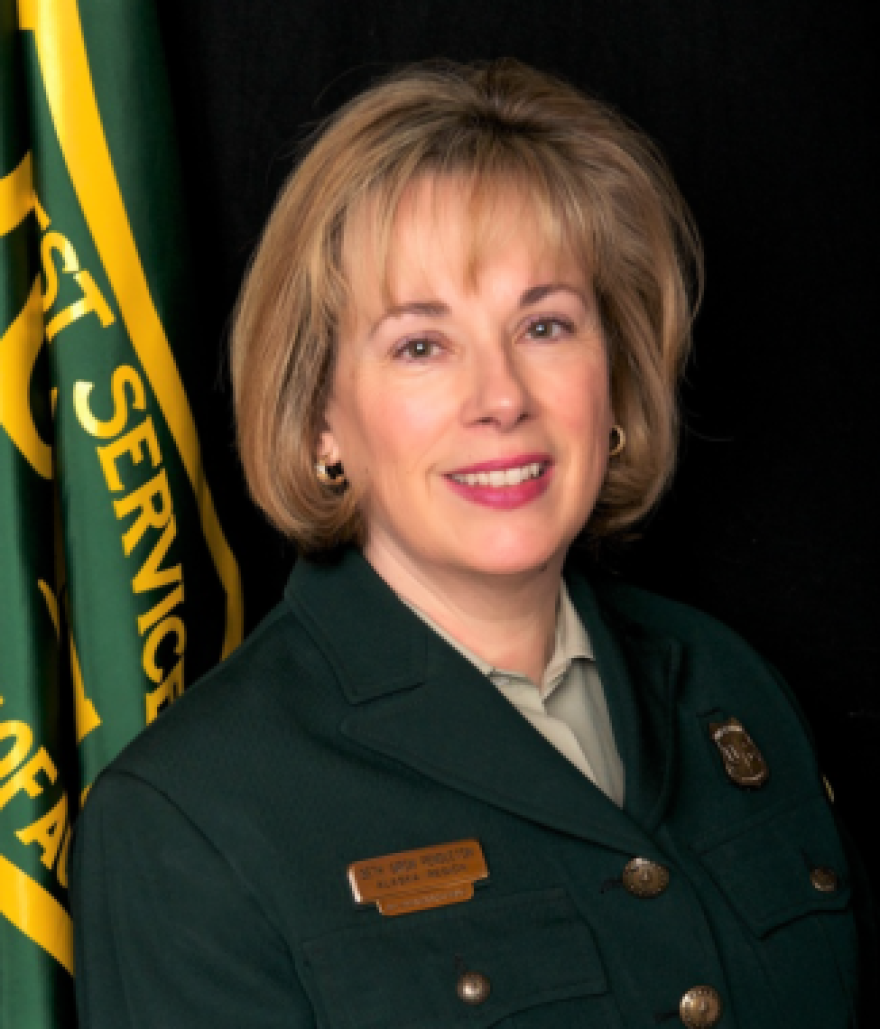The U.S. Forest Service controls 22 million acres in Alaska, including most of Southeast. It’s overseen by a regional forester, whose staffers manage logging, mining, recreation and fish habitat.
The agency is getting a new top official in April. David Schmid will have to deal with a particularly controversial land management plan that’s under attack.
Schmid began his Forest Service career in Alaska. He and his wife moved here in the early 1980s for his first agency job, in Southcentral’s ChugachNational Forest. Later, he worked in the Tongass in Southeast.
“Over the years I think we spent 23 years together in Alaska and just having an opportunity to come back and re-engage with folks and work on Alaska issues has just been a dream of mine,” Schmid said.
Schimd is leaving his post as deputy regional forester for the agency’s Northern Region, based in Missoula, Montana.
Schmid will take over the Juneau-based Alaska Region job from Regional Forester Beth Pendleton, who’s retiring after eight years in the position. She’s spent about 30 years in the Forest Service, two-thirds of it in Alaska.
Pendleton served as acting associate chief of the nationwide agency during the transition to the Trump administration. And recently, the agency’s chief stepped down amid allegations of sexual misconduct.
Despite shakeups at the top, Pendleton said there was no pressured to leave.
“My plans to retire were in 2018. So this is per my choice to retire at this time,” Pendleton said.
Pendleton oversaw the Forest Service’s Alaska region during development of the most recent Tongass Land Management Plan. It’s been challenged in court and in Congress, largely because it begins the phase-out of old-growth logging.
Pendleton believes the plan will survive because it’s flexible and can absorb change.
“We’ve been really focusing on that transition to young-growth harvests and renewable energy. There is an adaptive management component that’s associated with the plan, where there’s room … to further amend the plan in the future if needed,” Pendleton said.
Pendleton said she’ll bring her replacement up to speed before she leaves the office.
Schmid hasn’t been part of this version of the Tongass planning battle. But he’s familiar with the issues from his days as district ranger for Thorne Bay, on Prince of Wales Island. Before the big mills closed, it was a center of Alaska’s timber industry.
Schmid said he’s dealt with similar conflicts in his current job.
“I think I’ve had something like 75 or 80 objection resolution meetings here in Montana and Northern Idaho and North Dakota. And often times, mostly around tribal planning or large vegetation management, I would say it was almost identical to my experiences in Alaska with some very polarized issues,” Schmid said.
A March 15 Forest Service press release announcing the transition said Schmid will be acting regional forester. But he said he’ll be here for the long haul.
The Forest Service has nine regional offices. Not a lot are overseen by women.
But Pendleton said she’s not unique.
“I would say in the last 10 to 15 years we’ve seen more women and minorities come into some of these leadership positions. And I have had nothing but support and encouragement as I have worked in the agency and as I have served here in Alaska,” Pendleton said.
A recent investigation showed a pattern of gender discrimination, bullying, sexual harassment and assault against women in fire crews and some other sections of the Forest Service.



